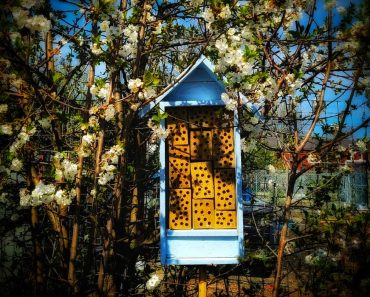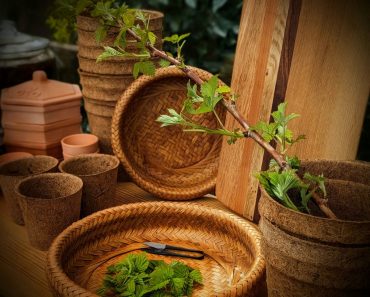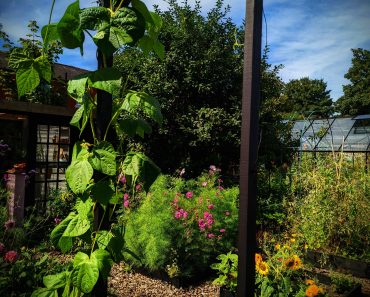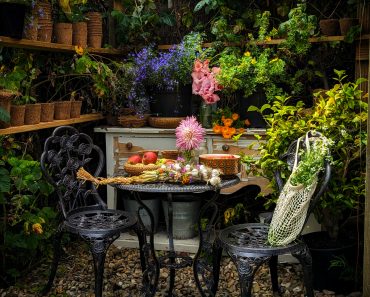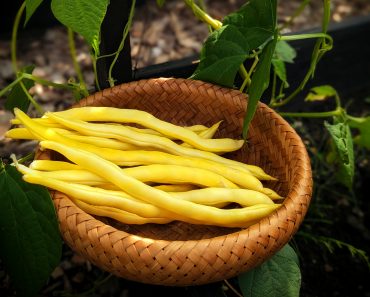Learn how to grow Dahlias! These Breathtaking, vibrant flowers have an exotic flamboyant beauty, that will make them the focal point of your flower beds! These tender Perennials are Perfect for Borders and Cottage Gardens.
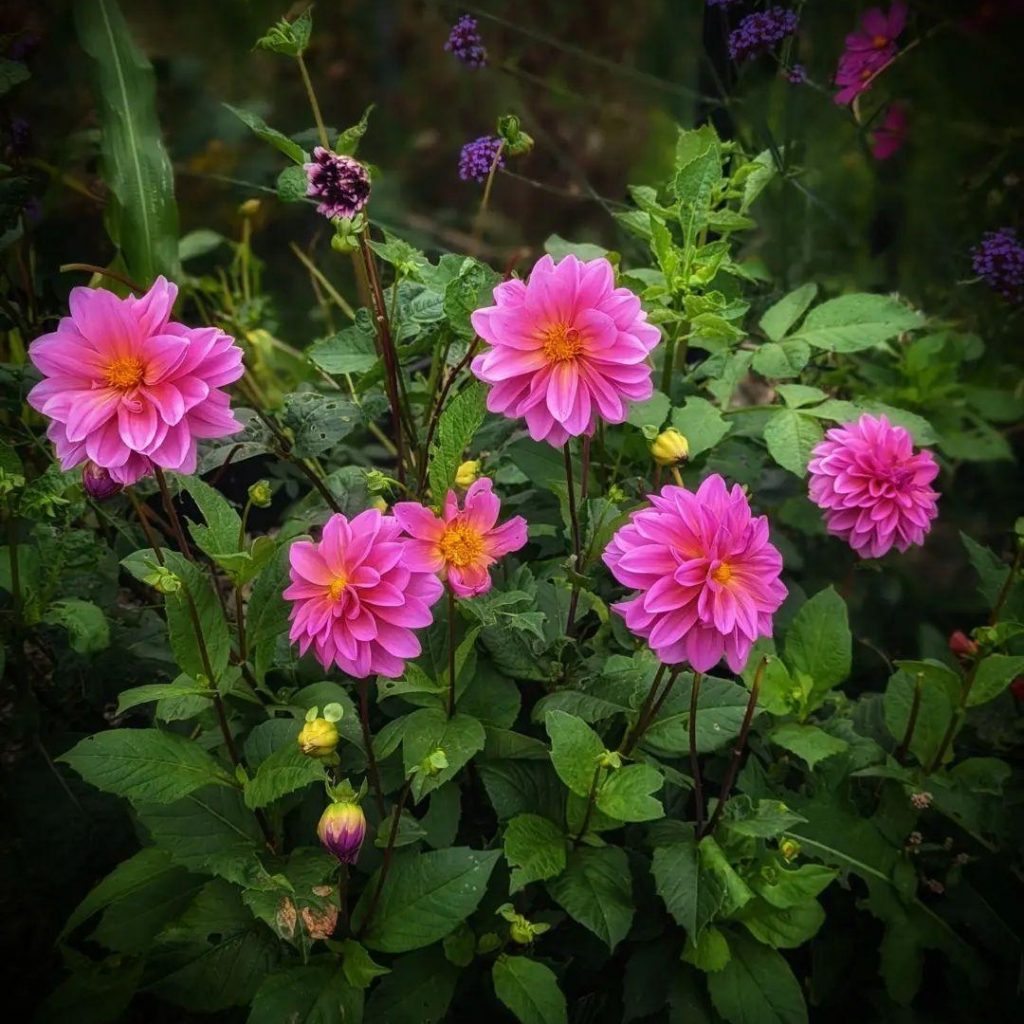
This post may contain affiliate links please see my disclosure policy
Dahlia Summary
Dahlias are grown from underground tubers. They begin to sprout in spring and bloom late in the season towards the end of Summer, they are the grand finale of the growing season!
Lets Talk about Dahlia Tubers
A Dahlia tuber is a tuberous root with a starchy body that contains food, water, and nutrition for the Dahlia plant. The tuber provides all the nutrients the Dahlia Plant needs until the plant establishes its own root system.
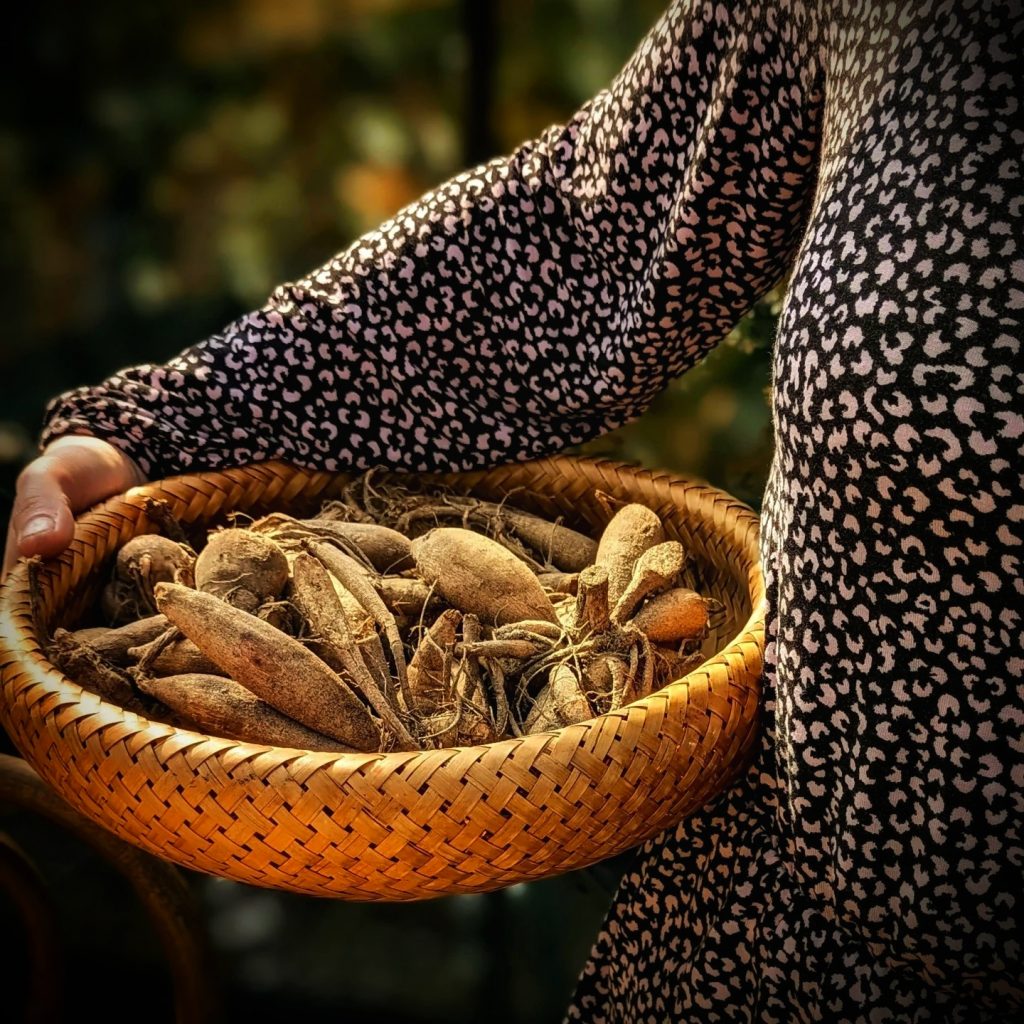
How does Your Dahlia Grow?
The Dahlia Tuber has a central short woody stem (the crown), attached are several oval shaped ‘bulbs’ that look a little like elongated potatoes! The Tubers themselves do not sprout, they are simply food storage vessels. It is the Crown that produces tiny buds at its base, they will sprout and the stems will grow from there.
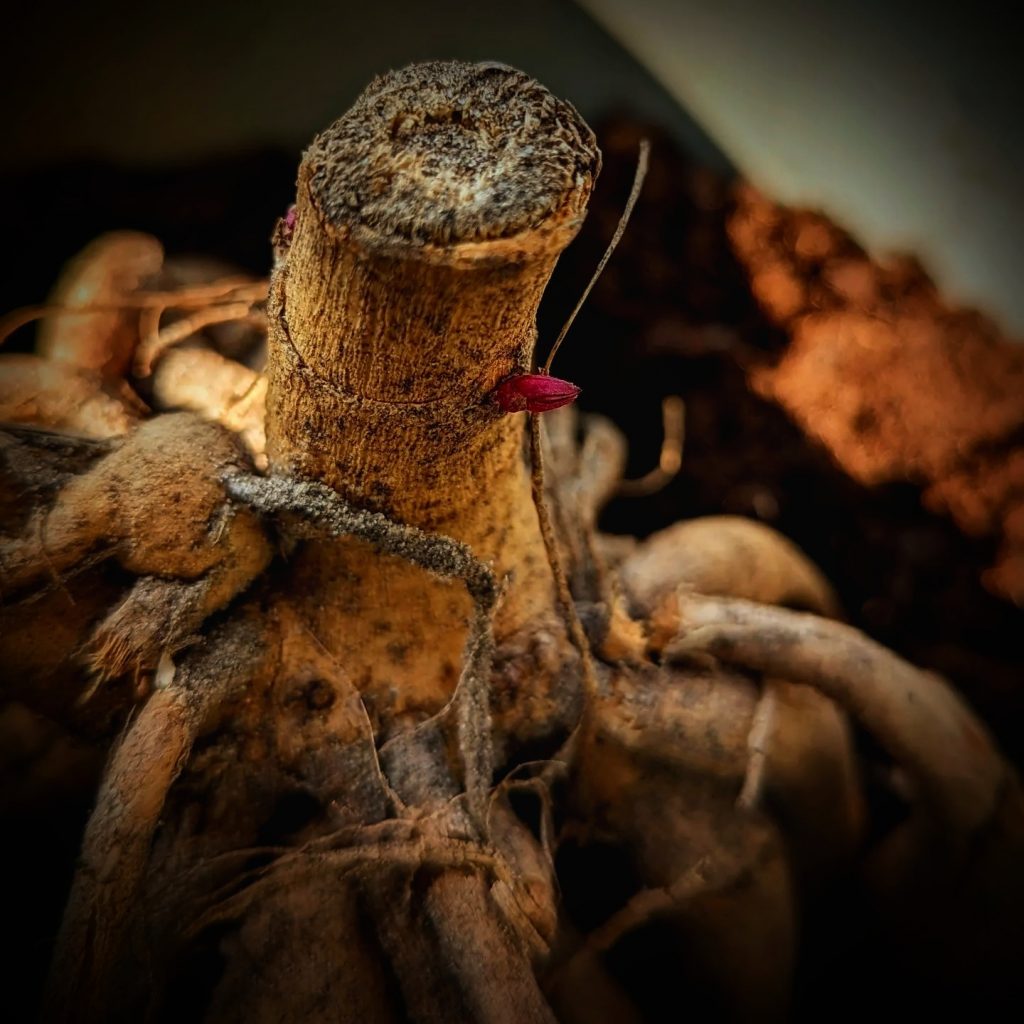
How to Plant Dahlia Tubers
Living in a cool climate like the one in the UK, I find new Dahlia Tubers fair best when planted indoors first. Around 4-6 weeks before the last frost date (Mid March for me), fill pots with moist compost. Then plant the tuber with the central stem (crown) facing up. Cover with compost, leaving just the top of the crown showing (See Picture below) Place the pots in a warm and light environment, water sparingly.

Water More Frequently once the sprouted Dahlias begin to emerge
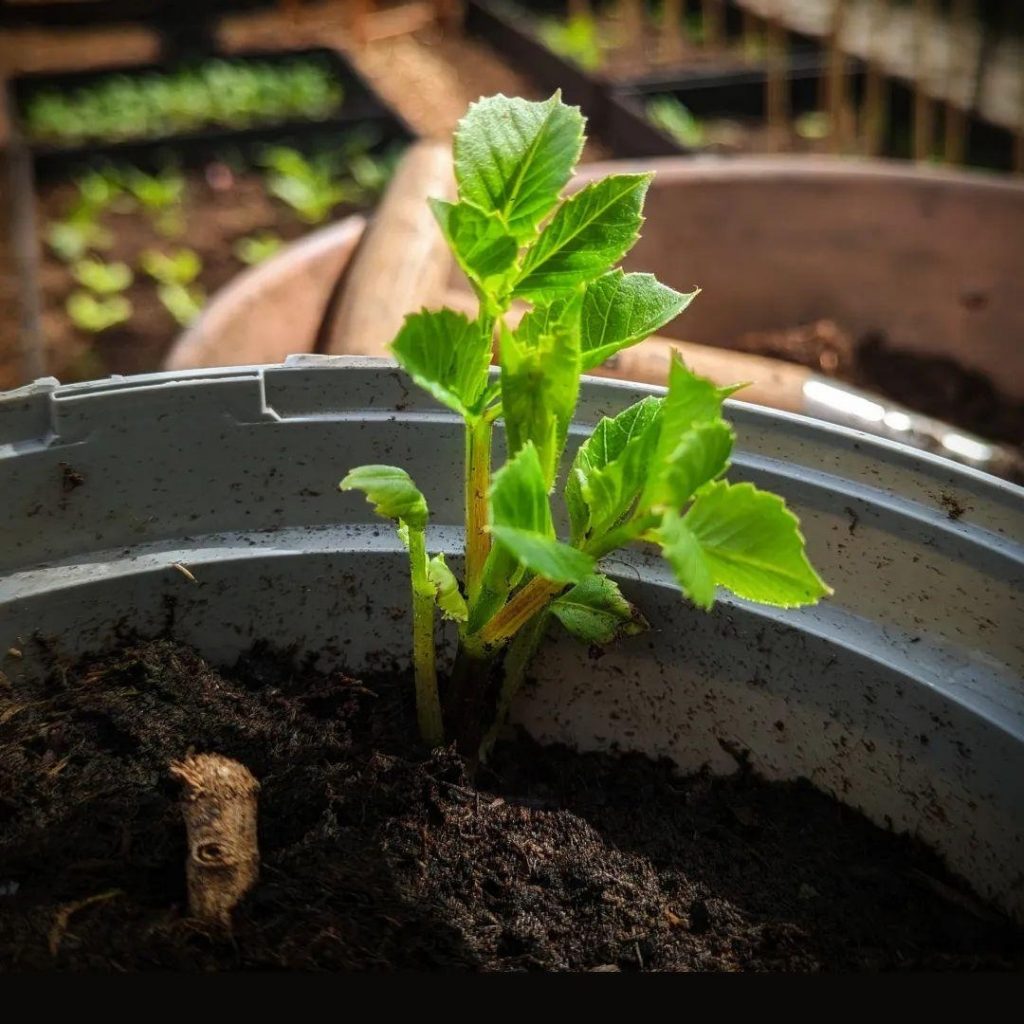
Plant Direct
Alternatively Dahlia Tubers can be planted directly into the ground in Spring but only when the soil is warmer and the Risk of frost has passed. Dahlias are very particular, they will not grow in cold soil.
Where and How to Plant Dahlias
Affiliate links
Dahlias do best in a full Sun Location with well drained soil. To plant Dahlia Tubers, loosen the soil and create a planting hole around 12 Inches in depth. Add some fresh compost and Granular Fertiliser like this one to the hole, then plant the sprouted tubers, keeping the stem and sprouts upright, back fill with soil. *** The top of the Tubers, where the sprouts have emerged should be no more than 2 inches below soil level.
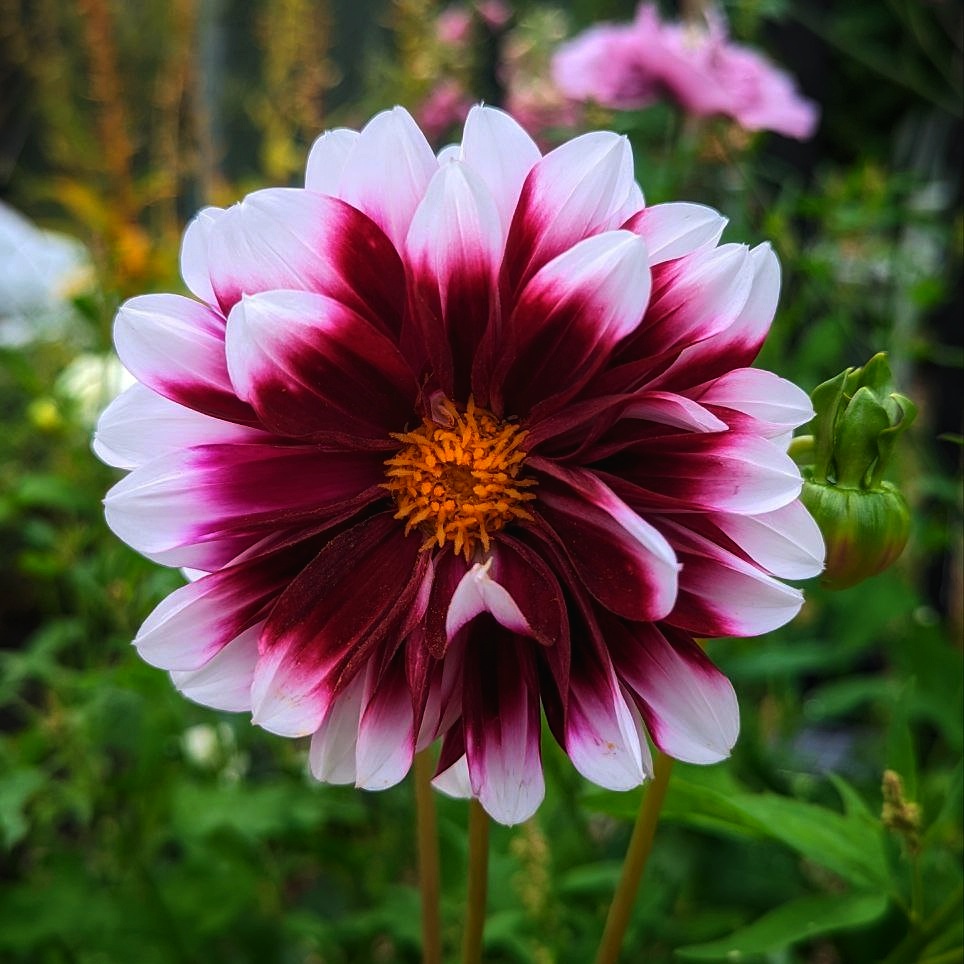
Pinching Dahlias
When your Dahlias are roughly 12” tall, pinch off the growing tip of the main stem. This will encourage the plant to branch out, resulting in more stems and more Blooms! To pinch, simply remove the top pair of leaves off the plant by using a sharp knife or squeeze between your thumb and forefinger to remove.
Staking Dahlias
Affiliate links
Its really all dependant on the breed of Dahlia, some smaller border type Dahlias are self supporting, but most full size dahlias can grow to heights of 4 feet! You are going to want to stake them to avoid any wind damage or flopping over. Do this by using Bamboo canes or invest in Dahlia Supports
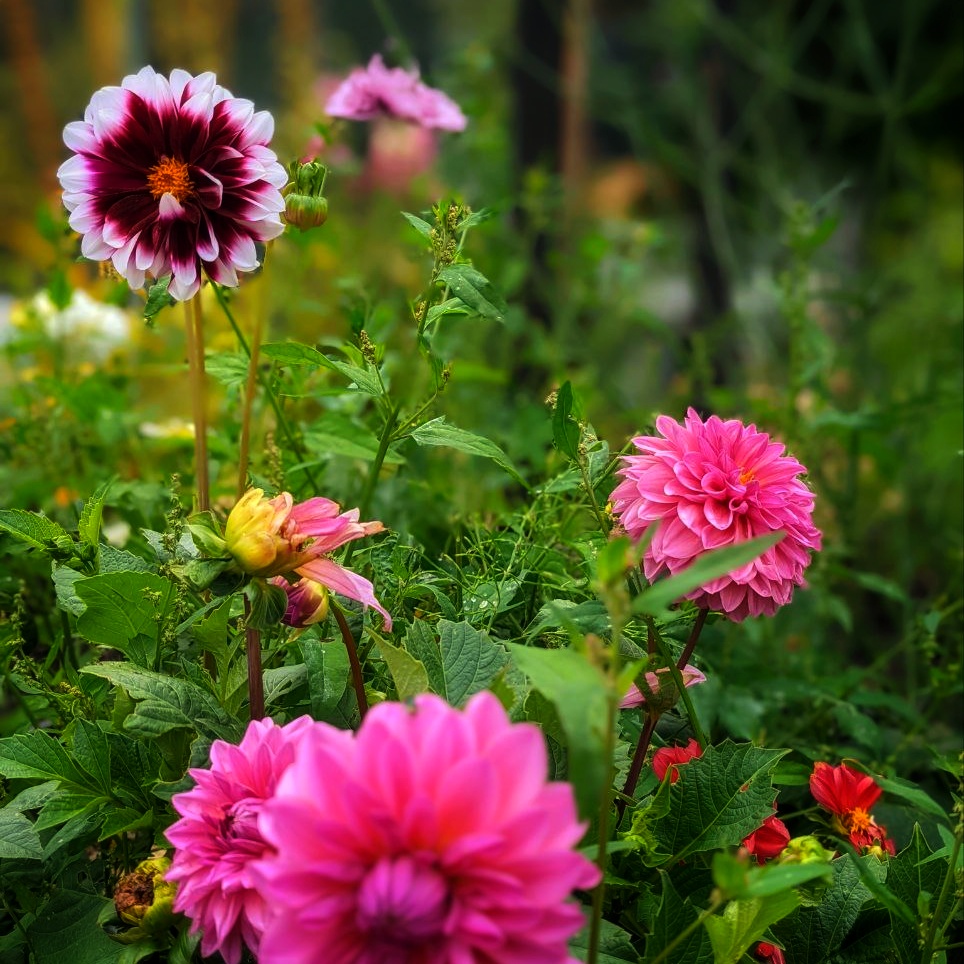
Shop My Dahlias
Affiliate links
Watering
Once established Dahlias need a consistent supply of water. Water well once or twice per week, more during very dry spells *Top Tip-Adding Mulch around the base of the Dahlias will help maintain a good level of moisture for the plants.
Fertiliser for Dahlias
Affiliate links
Dahlias benefit from a low nitrogen fertiliser. For an extra boost, feed them once a month with an All purpose fertiliser like this one. *Top Tip- If your intention is to dig up your Tubers at the end of the season and store them over winter…stop adding fertiliser by early September (they will store better)
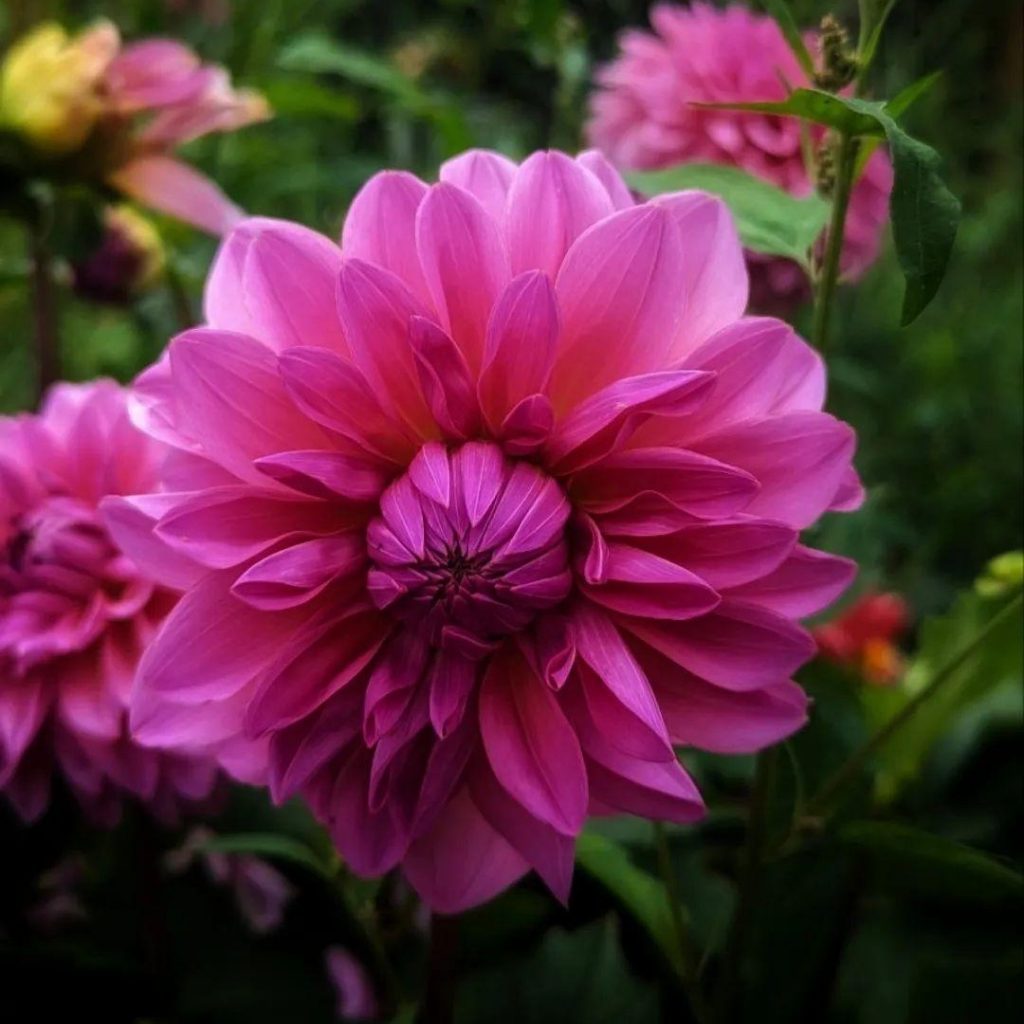
Dahlia Care
Dahlias are a dense plant and air circulation can be a problem, thick foliage can invite disease. I like to cut away any heavy foliage at the bottom of the plant, to give it a little extra breathing space. It also helps with the slugs, denying them an environment to hide in!
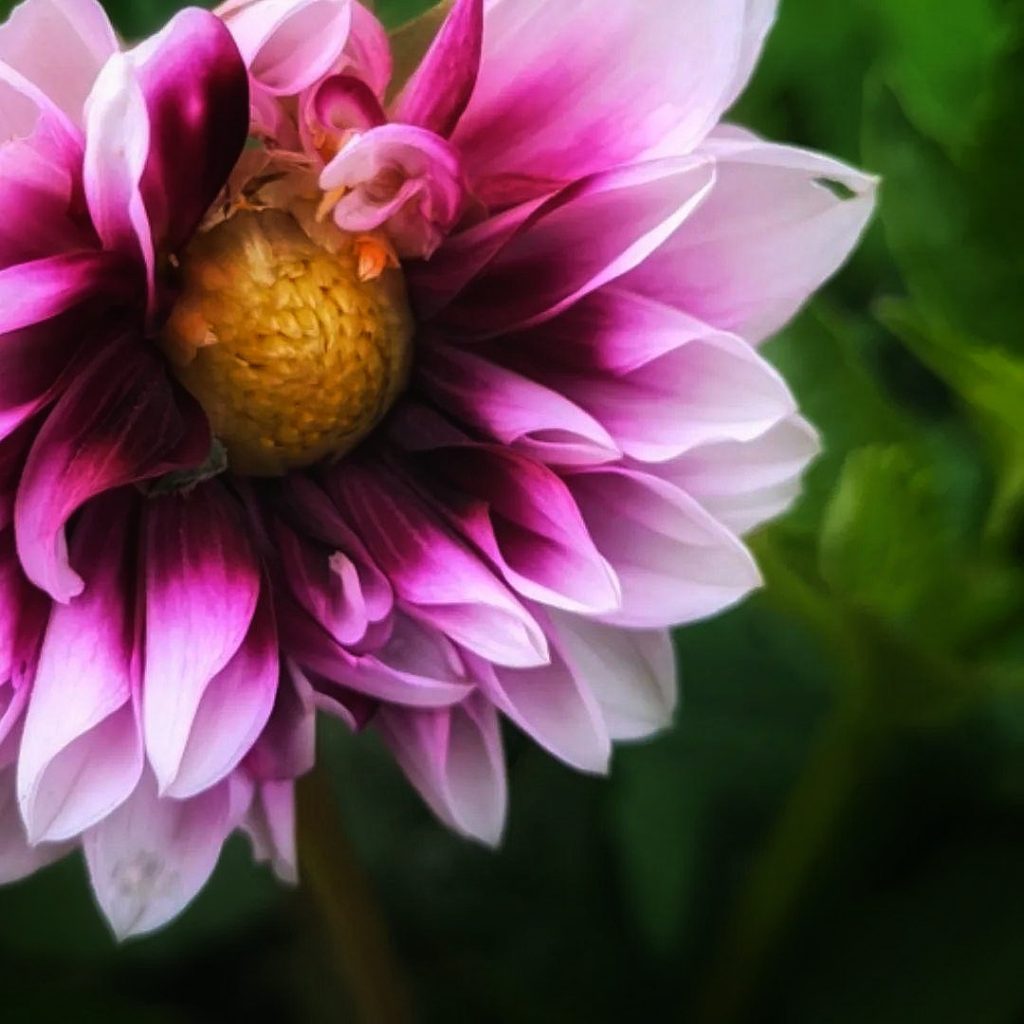
Cut Flowers?
Growing for the purpose of Cut Flowers? Keep Harvesting! Its good for the plant and will encourage more blooms to grow, yielding Dahlias by the bucket load!
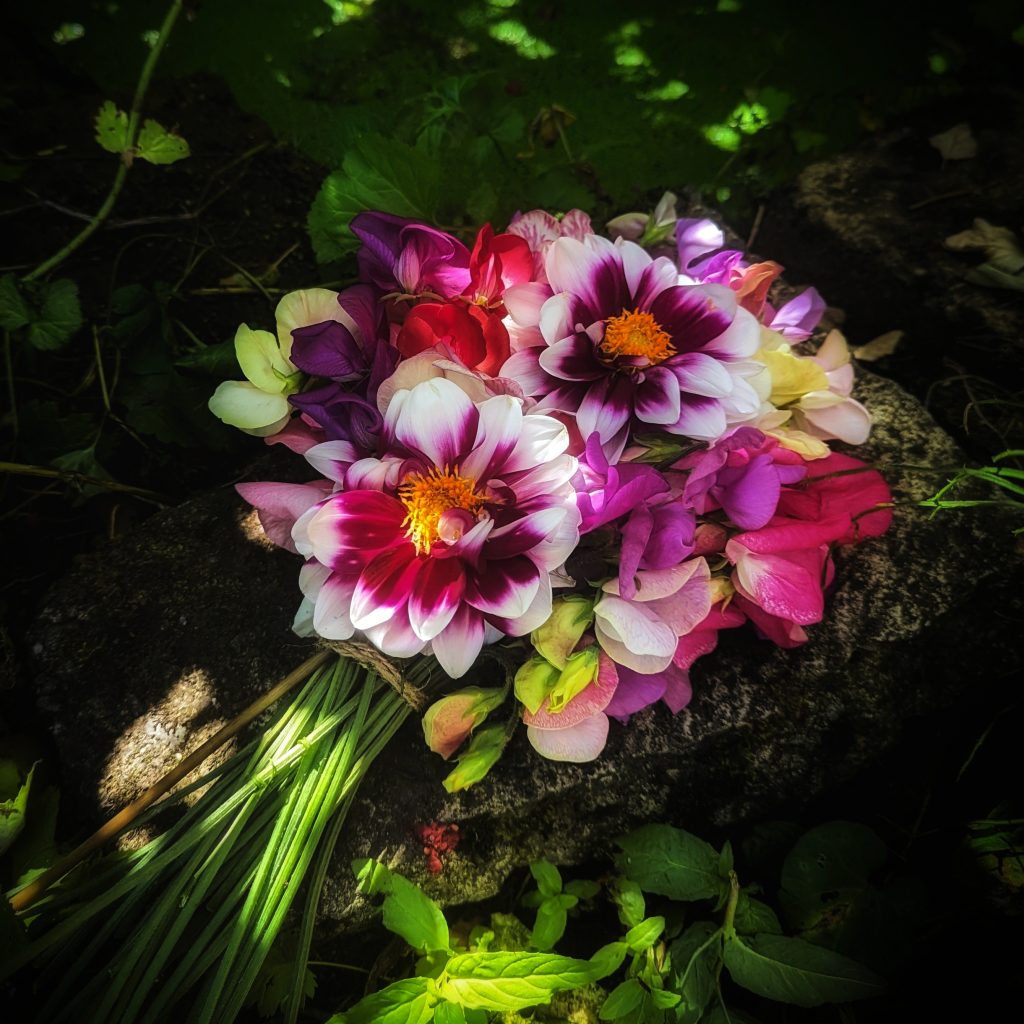
Deadheading Dahlias
Keep on top of the Deadheading. Removing spent faded flowers, not only keeps the plant looking neat and tidy but also encourages new bud development and helps with pest control. Simply pinch off the spent flower heads with your fingers or use scissors or pruners to snip them off.
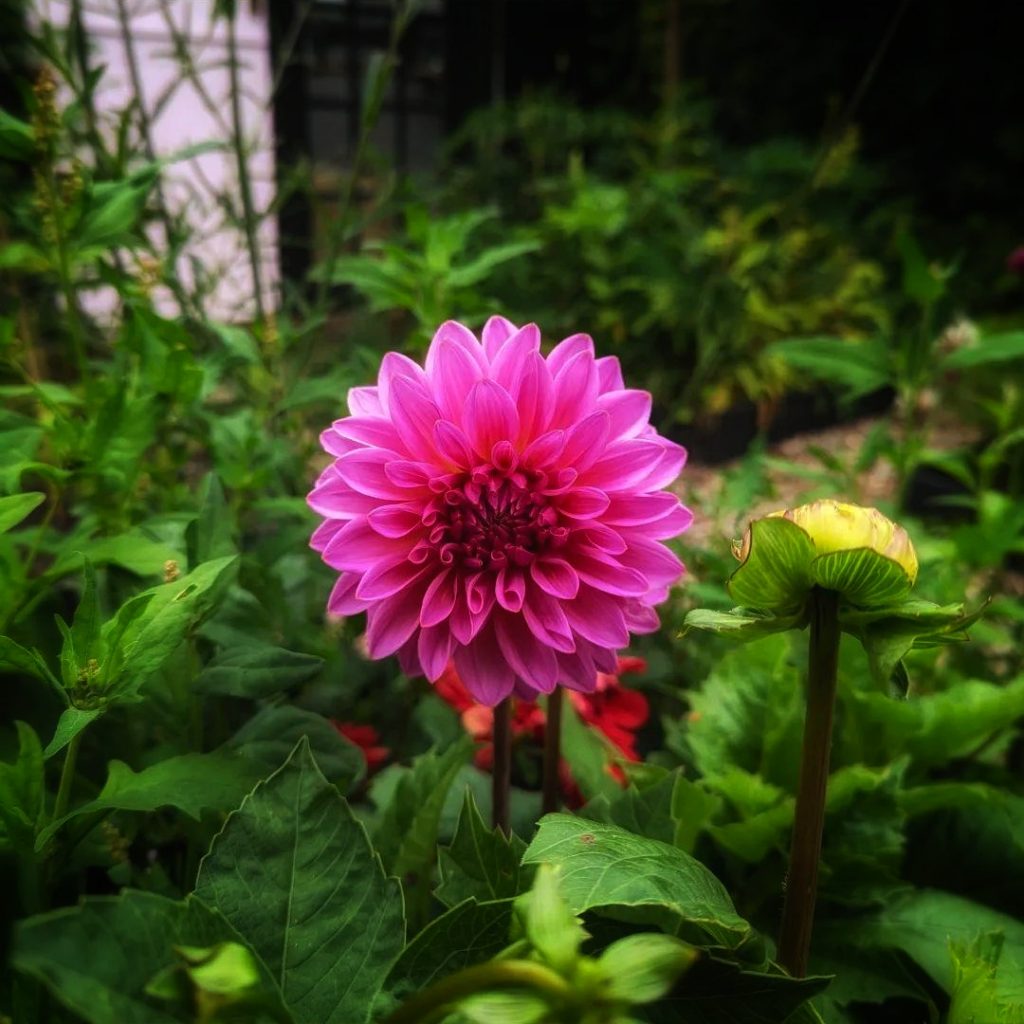
Digging up Dahlia Tubers for Winter Storage
- Once the Dahlias have bloomed their last bloom, in October-November, allow them to die back , then leave the stems to go black from the first hard frost for a period of around two weeks- this allows the sugars from the plant to feed the tuber.
- Don’t cut the dead Dahlia stems until right before digging them up, this is because Dahlia stems are hollow and can collect water, which can then lead to crown rot and tuber decay over winter.
Want to Leave the Tubers in The Ground?
For extra protection cover the Dahlia bed with a thick layer of Mulch to keep your Tubers Snug Over Winter. Though the Mulch helps a lot, Some Dahlias may not survive the winter in the ground, it really depends on your climate- in milder winters Dahlias will fair better.
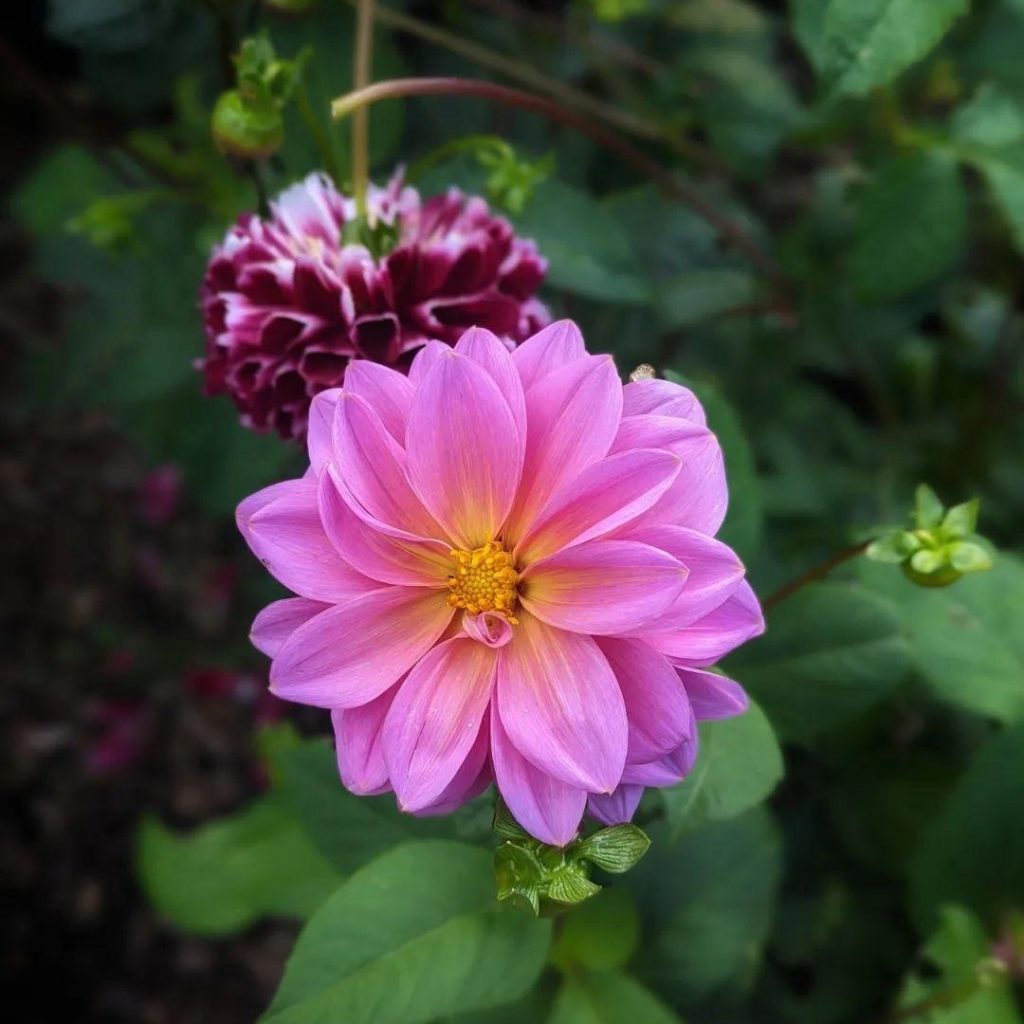
More Flower Posts!
Looking For More ‘Homely’ Inspo!
Have a nosey around the blog and visit me on Instagram

